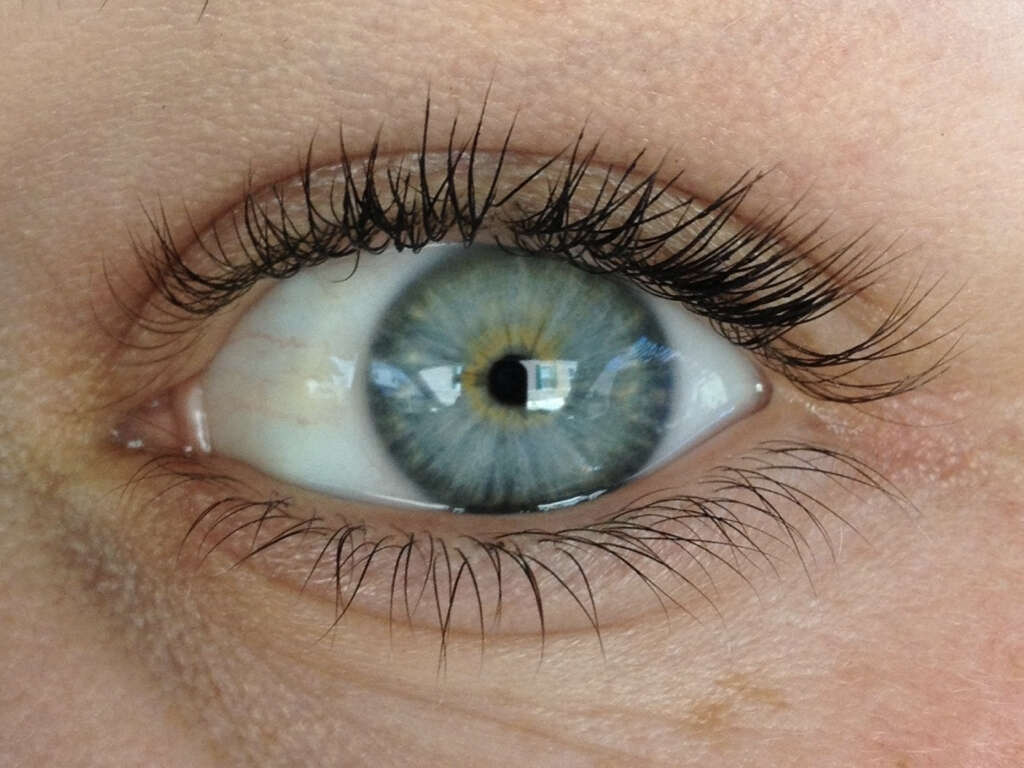10 Fragile X Symptoms
 Article Sources
Article Sources
- 1. 'What Is Fragile X Syndrome (FXS)?' Centers for Disease Control and Prevention, Centers for Disease Control and Prevention, 23 Oct. 2020, www.cdc.gov/ncbddd/fxs/facts.html
- 2. 'What Are the Symptoms of Fragile X Syndrome?' Eunice Kennedy Shriver National Institute of Child Health and Human Development, U.S. Department of Health and Human Services, www.nichd.nih.gov/health/topics/fragilex/conditioninfo/commonsymptoms
- 3. 'Fragile X Syndrome: Symptoms and Causes: Boston Childrens Hospital.' Boston Childrens Hospital, www.childrenshospital.org/conditions-and-treatments/conditions/f/fragile-x-syndrome/symptoms-and-causes
- 4. 'Fragile X Syndrome: Diagnosis, Symptoms & Treatment.' Cleveland Clinic, my.clevelandclinic.org/health/diseases/5476-fragile-x-syndrome#symptoms-and-causes
- 5. 'Fragile X Syndrome.' NORD (National Organization for Rare Disorders), 18 Sept. 2017, rarediseases.org/rare-diseases/fragile-x-syndrome/
- 6. Tranfaglia, Michael R. 'The Psychiatric Presentation of Fragile X: Evolution of the Diagnosis and Treatment of the Psychiatric Comorbidities of Fragile X Syndrome.' Developmental Neuroscience, Karger Publishers, 2 Sept. 2011, www.karger.com/Article/Fulltext/329421
Fragile X syndrome, or FXS, is a genetic disorder caused by a mutation on the FMR1 gene on the X chromosome. FXS is a common cause of inherited intellectual impairment and developmental delays. The disorder is also referred to as Martin-Bell syndrome.1‘What Is Fragile X Syndrome (FXS)?’ Centers for Disease Control and Prevention, Centers for Disease Control and Prevention, 23 Oct. 2020, www.cdc.gov/ncbddd/fxs/facts.html
Approximately one in 7,000 men and one in 11,000 women are affected by FXS. Individuals with fragile X syndrome may exhibit a wide range of behavioral, cognitive and physical symptoms. Some symptoms may improve with age while others may worsen. Women usually have milder symptoms because they have two X chromosomes, which means they also have two FMR1 genes.3‘Fragile X Syndrome: Symptoms and Causes: Boston Childrens Hospital.’ Boston Childrens Hospital, www.childrenshospital.org/conditions-and-treatments/conditions/f/fragile-x-syndrome/symptoms-and-causes
Intellectual Challenges
Children with fragile X syndrome may have mild-to-severe learning disabilities. They may struggle with mathematical skills, short-term memory recall, problem-solving and abstract thinking. Some are easily distracted and make impulsive decisions.1‘What Is Fragile X Syndrome (FXS)?’ Centers for Disease Control and Prevention, Centers for Disease Control and Prevention, 23 Oct. 2020, www.cdc.gov/ncbddd/fxs/facts.html
IQ scores of children with FXS tend to decline over time, and they can't keep up with their peers academically. Average IQ scores in the general population are around 100, while boys with FXS have average IQ scores under 55. Children and teenagers affected by FXS may be more successful as visual learners than auditory learners. They may grasp concepts represented by pictures and graphs more easily than spoken information or instructions.4‘Fragile X Syndrome: Diagnosis, Symptoms & Treatment.’ Cleveland Clinic, my.clevelandclinic.org/health/diseases/5476-fragile-x-syndrome#symptoms-and-causes

Developmental Delays
Babies and young children affected by FXS may have poor muscle tone. This can interfere with gross motor skills and cause delay in milestones, such as sitting up, rolling over, crawling and walking. Visual problems may also contribute to delays in facial recognition, fine motor skills and eye-hand coordination.3‘Fragile X Syndrome: Symptoms and Causes: Boston Childrens Hospital.’ Boston Childrens Hospital, www.childrenshospital.org/conditions-and-treatments/conditions/f/fragile-x-syndrome/symptoms-and-causes
Approximately 25 to 55 percent of children with fragile X syndrome require corrective glasses for far-sightedness or astigmatism. Children may also exhibit strabismus, which is an inability to focus both eyes on an object.4‘Fragile X Syndrome: Diagnosis, Symptoms & Treatment.’ Cleveland Clinic, my.clevelandclinic.org/health/diseases/5476-fragile-x-syndrome#symptoms-and-causes

Speech Difficulty
Speech delays are typically the earliest symptoms of fragile X syndrome noticed by parents. Children may not say their first words until they're almost 2 1/2 years old. Language difficulties may include repetition, cluttered speech and echolalia, or repeating words and phrases said by others.2‘What Are the Symptoms of Fragile X Syndrome?’ Eunice Kennedy Shriver National Institute of Child Health and Human Development, U.S. Department of Health and Human Services, www.nichd.nih.gov/health/topics/fragilex/conditioninfo/commonsymptoms
Cluttered speech is characterized by talking too fast, inserting extra syllables, unclear expression or excessive pauses between words. Adults may have trouble staying on topic or using too many speech interjectors, such as um or uh.2‘What Are the Symptoms of Fragile X Syndrome?’ Eunice Kennedy Shriver National Institute of Child Health and Human Development, U.S. Department of Health and Human Services, www.nichd.nih.gov/health/topics/fragilex/conditioninfo/commonsymptoms

Shyness
Children with fragile X syndrome may be shy around new people. Although girls tend to have milder FXS symptoms overall, they may be more prone to extreme shyness. Girls may try to hide behind or cling to parents in new situations.4‘Fragile X Syndrome: Diagnosis, Symptoms & Treatment.’ Cleveland Clinic, my.clevelandclinic.org/health/diseases/5476-fragile-x-syndrome#symptoms-and-causes
Some children may whisper quietly or feel unable to speak at all around their peers. Boys and girls may have trouble making eye contact with others. In some cases, severe social phobia may cause nausea, headaches or vomiting.2‘What Are the Symptoms of Fragile X Syndrome?’ Eunice Kennedy Shriver National Institute of Child Health and Human Development, U.S. Department of Health and Human Services, www.nichd.nih.gov/health/topics/fragilex/conditioninfo/commonsymptoms

Hyperactivity
Hyperactivity is a possible symptom of fragile X syndrome that affects boys to a greater extent than girls. Children may become easily frustrated and throw tantrums. Up to 74 percent of teenagers with FXS display symptoms of ADHD, and approximately 29 percent are diagnosed with oppositional defiant disorder.6Tranfaglia, Michael R. ‘The Psychiatric Presentation of Fragile X: Evolution of the Diagnosis and Treatment of the Psychiatric Comorbidities of Fragile X Syndrome.’ Developmental Neuroscience, Karger Publishers, 2 Sept. 2011, www.karger.com/Article/Fulltext/329421
Adults and adolescents may have trouble sleeping and may experience drowsiness and fatigue during the day. Some lifelong fragile X symptoms include anxiety, mood disorders and obsessive-compulsive disorder.6Tranfaglia, Michael R. ‘The Psychiatric Presentation of Fragile X: Evolution of the Diagnosis and Treatment of the Psychiatric Comorbidities of Fragile X Syndrome.’ Developmental Neuroscience, Karger Publishers, 2 Sept. 2011, www.karger.com/Article/Fulltext/329421

Autism
Approximately four out of 10 people with fragile X syndrome are also diagnosed with autism. They may have difficulty transitioning to new activities and locations or react negatively to changes in daily routines. Children may also experience hypersensitivity to certain textures, loud noises or bright lights.3‘Fragile X Syndrome: Symptoms and Causes: Boston Childrens Hospital.’ Boston Childrens Hospital, www.childrenshospital.org/conditions-and-treatments/conditions/f/fragile-x-syndrome/symptoms-and-causes
Some children and adolescents don't understand nonverbal communication and may exhibit aggressive or self-harming behaviors when they're overwhelmed by sensory input or social situations. Other self-soothing behaviors include hand biting or flapping and rocking back and forth.6Tranfaglia, Michael R. ‘The Psychiatric Presentation of Fragile X: Evolution of the Diagnosis and Treatment of the Psychiatric Comorbidities of Fragile X Syndrome.’ Developmental Neuroscience, Karger Publishers, 2 Sept. 2011, www.karger.com/Article/Fulltext/329421

Seizures
Seizure disorders occur in approximately 15 percent of males and 8 percent of females with fragile X syndrome. Most of these individuals experience focal (or partial) seizures with symptoms such as staring into space, abnormal head or neck movements and repetitive actions, including blinking, lip-smacking or shouting.2‘What Are the Symptoms of Fragile X Syndrome?’ Eunice Kennedy Shriver National Institute of Child Health and Human Development, U.S. Department of Health and Human Services, www.nichd.nih.gov/health/topics/fragilex/conditioninfo/commonsymptoms
Very few individuals with FXS experience grand mal seizures, which are characterized by violent muscle spasms and loss of consciousness. The majority of seizure disorders associated with FXS go into remission before adulthood.5‘Fragile X Syndrome.’ NORD (National Organization for Rare Disorders), 18 Sept. 2017, rarediseases.org/rare-diseases/fragile-x-syndrome/

Physical Symptoms
Physical symptoms of fragile X usually aren't noticed in young children. Some features, such as a narrow face, sunken chest, large head and ears or flat feet, may develop after puberty.3‘Fragile X Syndrome: Symptoms and Causes: Boston Childrens Hospital.’ Boston Childrens Hospital, www.childrenshospital.org/conditions-and-treatments/conditions/f/fragile-x-syndrome/symptoms-and-causes
Macroorchidism, or overly large testicles, occurs in almost 80 percent of men with FXS, although it doesn't affect fertility. A condition called primary ovarian insufficiency may cause infertility in women with FXS. Other symptoms include soft skin and abnormal structures within the ears that may lead to frequent ear and sinus infections.3‘Fragile X Syndrome: Symptoms and Causes: Boston Childrens Hospital.’ Boston Childrens Hospital, www.childrenshospital.org/conditions-and-treatments/conditions/f/fragile-x-syndrome/symptoms-and-causes

Effects on Connective Tissue
Fragile X syndrome may interfere with elastin, a protein necessary for elasticity in connective tissue. Connective tissue is found in joints and many other parts of the body. Individuals with FXS may have hyperextensible joints in the fingers, wrists, knees and elbows or hernias in the abdomen.2‘What Are the Symptoms of Fragile X Syndrome?’ Eunice Kennedy Shriver National Institute of Child Health and Human Development, U.S. Department of Health and Human Services, www.nichd.nih.gov/health/topics/fragilex/conditioninfo/commonsymptoms
Curvature of the spine may occur and increase risk of scoliosis. Some people with FXS are born with mitral valve prolapse that results in improper valve closure between chambers in the heart.5‘Fragile X Syndrome.’ NORD (National Organization for Rare Disorders), 18 Sept. 2017, rarediseases.org/rare-diseases/fragile-x-syndrome/

Renpenning Syndrome
Renpenning syndrome is a genetic disorder related to fragile X syndrome and occurs almost exclusively in males. Symptoms include intellectual disability, short height, cupped ears, slanted eye shape and long, narrow facial features.5‘Fragile X Syndrome.’ NORD (National Organization for Rare Disorders), 18 Sept. 2017, rarediseases.org/rare-diseases/fragile-x-syndrome/
Individuals with Renpenning syndrome may be born with heart defects, cleft palate or microcephaly, which is a very small head. Renpenning syndrome may also cause moderate-to-severe learning disabilities, and adults may develop seizure disorders or muscle atrophy and wasting.5‘Fragile X Syndrome.’ NORD (National Organization for Rare Disorders), 18 Sept. 2017, rarediseases.org/rare-diseases/fragile-x-syndrome/











